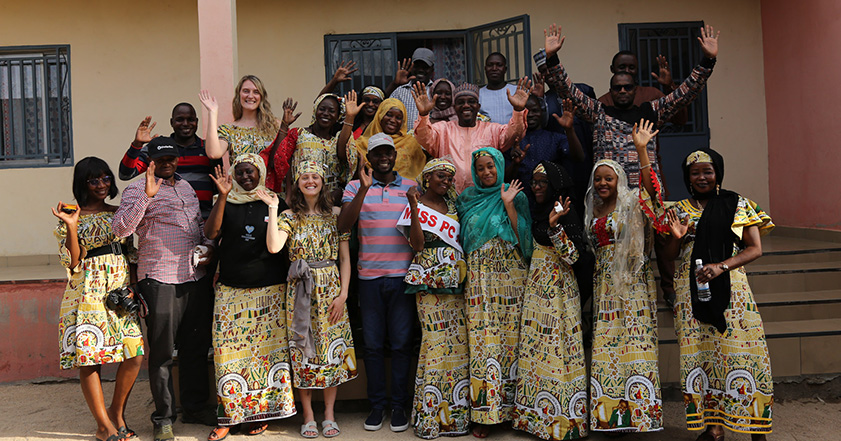ShelterBox responds to disasters and conflicts around the world. A key factor that allows us to support the people who need us is through working in partnership.
In this blog we are looking at how partnerships allow us to provide shelter to the people who need it. We’ll also share thoughts on our partnership with Public Concern in Cameroon.
Introducing ShelterBox partnerships
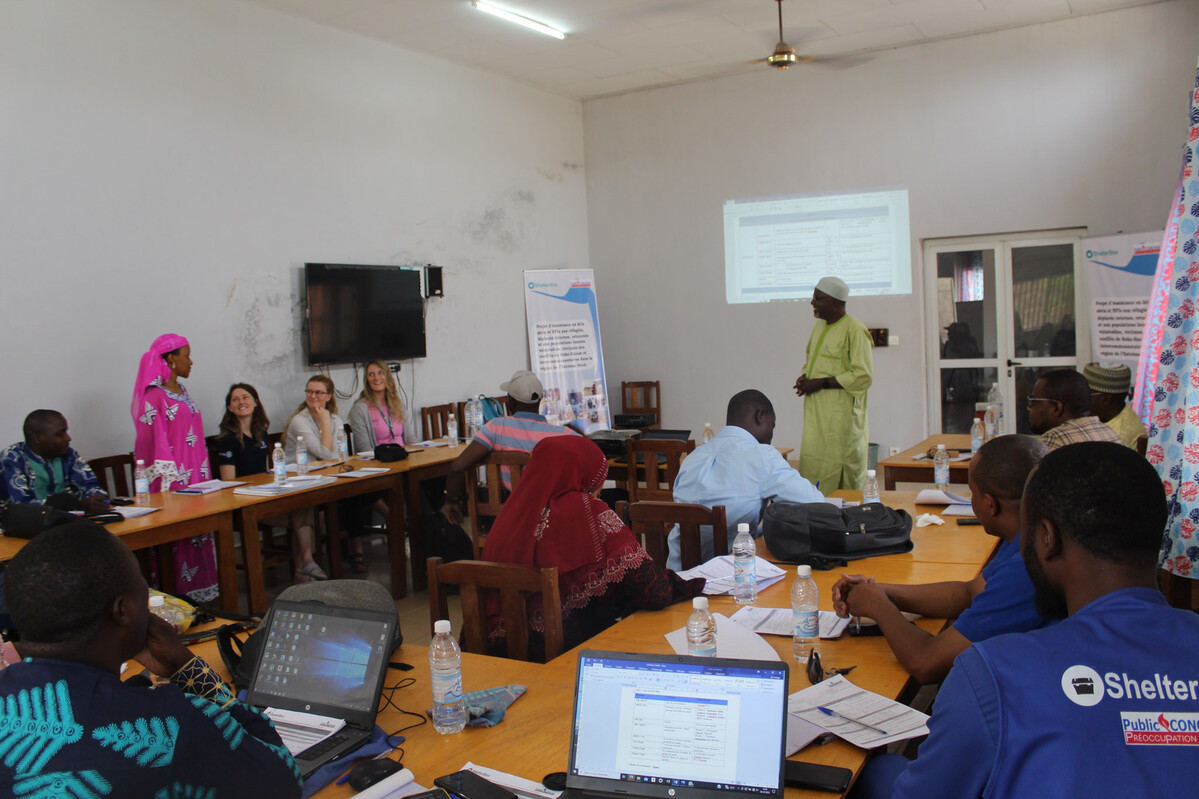
Our partnerships can come in different forms. There are our corporate partners who support our work through fundraising and donations. There is also Rotary. We were founded by a Rotary Club in Cornwall, and Rotary have been an important part of our work ever since.
Our operational partners are also a key part of our work. Operational partners are normally other humanitarian organisations we can work with. Doing so allows us to give the best response possible. In some cases the partners could be charities that specialise in other types of aid than shelter. At other times we work with humanitarian charities local to the places we are working.
Collaborating with local organisations has a lot of benefits. They can help provide information on the places we are going to be working. They can provide valuable links with local government we may need to talk to before working in a particular place. And they know the people we want to support. This allows us to understand the context of where we are going. Also they can provide assistance on the ground while aid is being distributed. Sometimes partners help with translations, and training people in how to use the aid they receive. And they can support in the collection of questions, complaints and feedback.
Of course we ensure our partners gain a great deal from working with us too! Funding for responses; sourcing aid; and close collaboration in assessment visits, aid distribution and evaluation are part of this. We also share what we have learnt from our over 20 years of experience responding to disasters. And we provide training to partners so they can pass on what they’ve learnt.
Working with partners is something the ShelterBox has always taken pride in. And we’ll continue to do so! They help bring us closer to a future where no one is without shelter after disaster.
Working with Public Concern in Cameroon
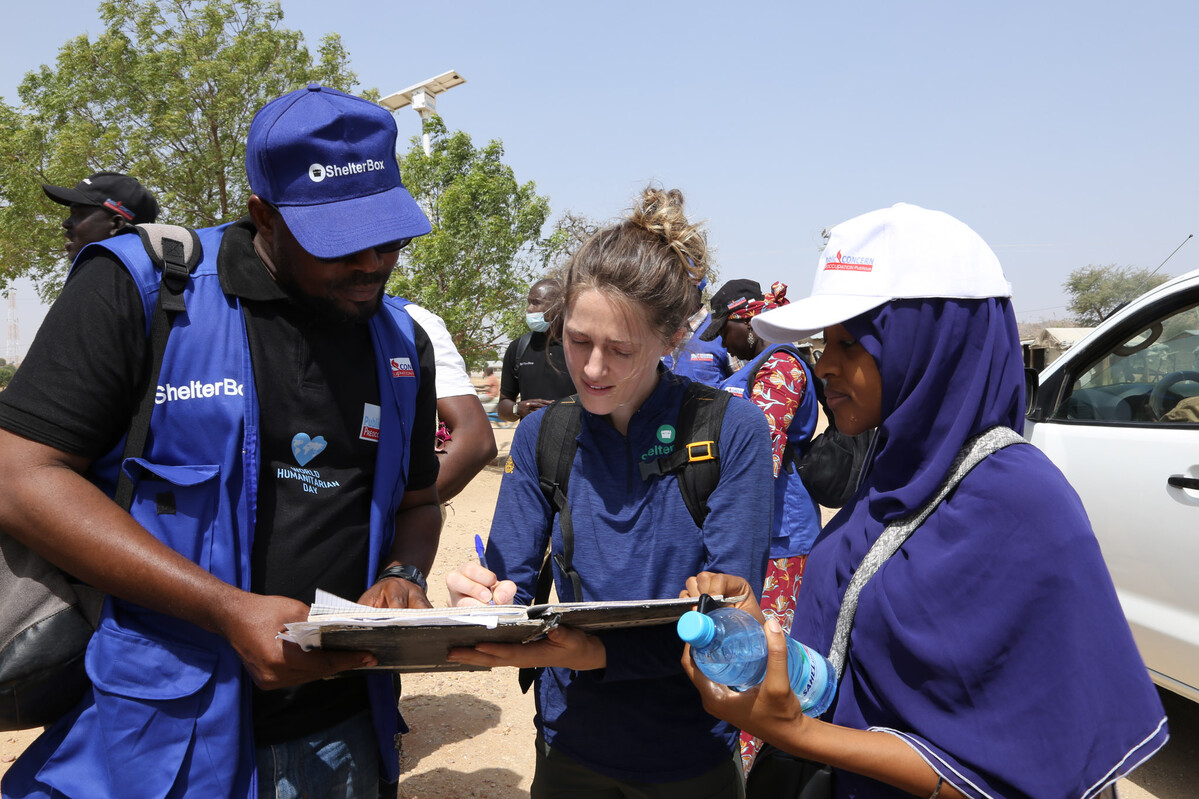
One of our current operational partners is Public Concern. This partnership has been built on the shared aim to support people in need of shelter in north Cameroon. Public Concern have been working in northern Cameroon for some time. Their work has included founding and setting up Minawao Camp there.
Our first project with Public Concern helped over 63,000 people without shelter. Tents and emergency shelter kits were supplied to people who were newly displaced. For those who had been displaced for more time, we offered a semi-durable shelter package. These can be used to repair and improve shelters. Finally, some people were supported with durable shelter kits. These could be used to build and maintain shelters for the longer term. There were also community tool kits that could be used to build shelters and make repairs. This project was such a success that we are now working with Public Concern on another project. This will help people in the far north of Cameroon with a mixture of emergency shelters, roof repair kits, and durable shelter kits. People will also receive household items.
Our partnership with Public Concern is one that has been of great mutual benefit. We recently asked two team members from Public Concern and the Cameroon project manager at ShelterBox what the partnership meant to be them. Below are their responses.
Flora, Cameroon Project Manager at ShelterBox
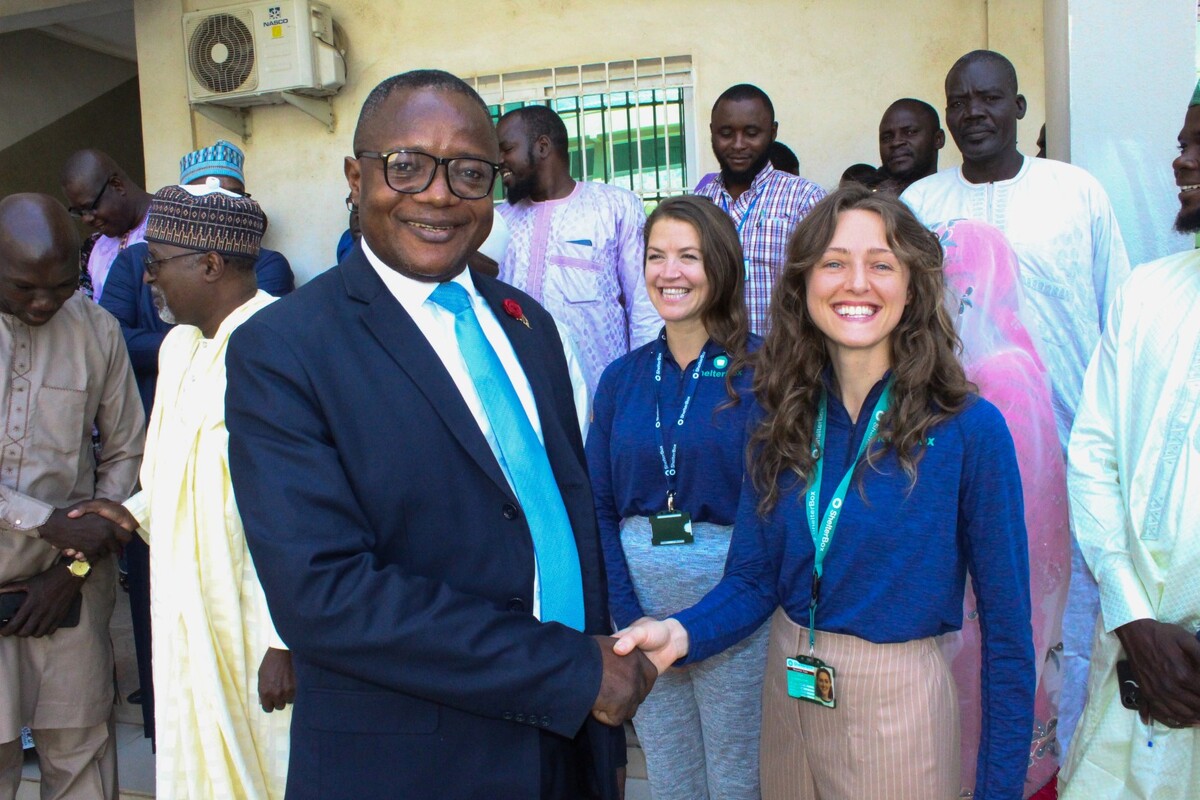
Flora works as our Project Manager for Cameroon. This means she manages the projects we run there. Working with project partners is an important part of this.
On working with Public Concern, Flora said, “We have built a really strong partnership which is based on common objectives, and both are interested in supporting people in need of shelter in the Far-North region of Cameroon. It is a really engaging and amazing partnership because there is great communication and shared objective.”
Flora continued, “In this partnership as well as delivering projects together, we are working on capacity sharing, where Public Concern share tools and their knowledge about context on people’s needs, and ShelterBox is able to share support, in terms of training, supporting developing document and procedures that really help support Public Concern’s work. So it’s a really balanced partnership where we can learn from for each other and delivery an amazing work together.”
Flora concluded, “We expect to have a long partnership with Public Concern and continue to support people in the region… we are committed to working in the region with an amazing partner in supporting people who need the most.”
Mokol, Project Manager at Public Concern
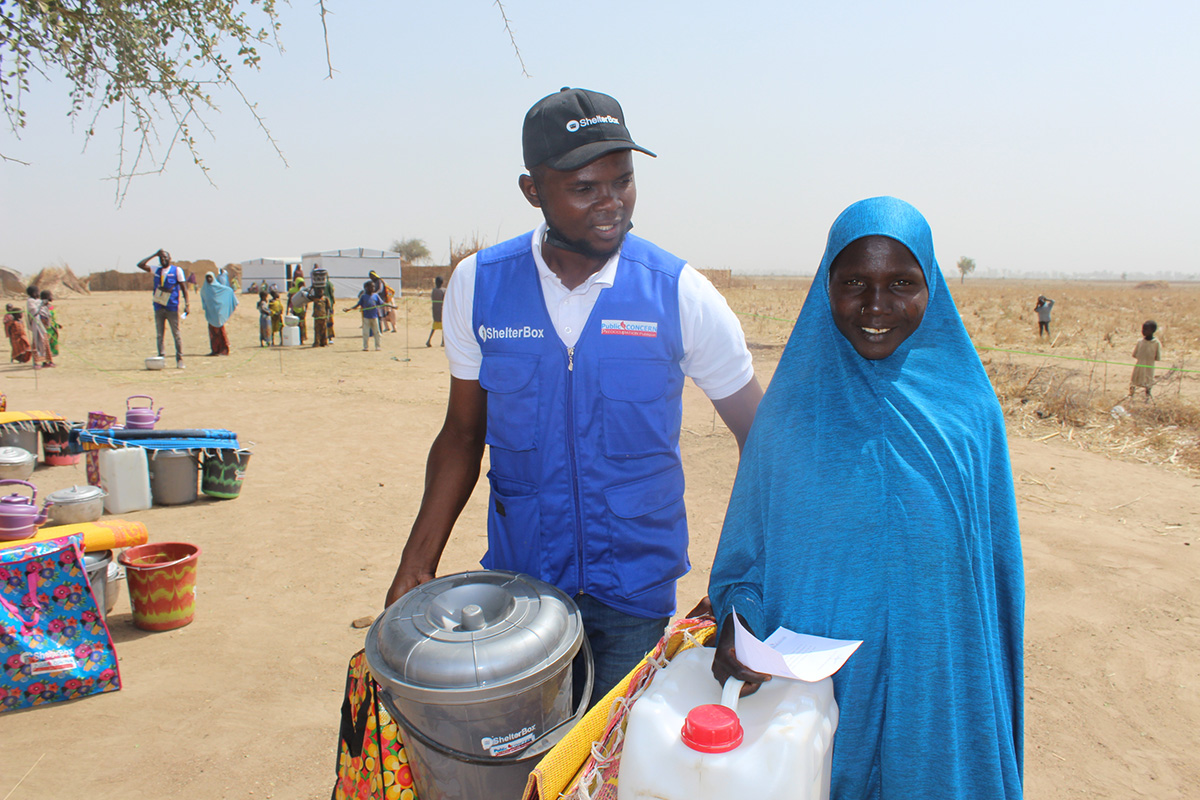
Ibrahima Bakary Mokol is the Project Manager for Public Concern. They manage the projects on which they are partnering with ShelterBox.
Mokol said when reflecting on their work with ShelterBox, “This was our first experience with ShelterBox, and in the end we had a positive feeling in the sense that the objectives set at the outset were largely achieved. Public Concern in general, and I as Project Manager, are very satisfied with this project, which was fantastic, and we look forward to continuing this working atmosphere during the next project.”
Mokol described the strengths of the partnership. “For me, the strengths of this partnership are the trust between the two parties… which began with exchanges, and then the visits that led to this partnership. The other strong point is the good collaboration, flexibility and attentiveness between the two partners, as well as SB’s conciliation.”
Mokol also commented on the positive outcomes of the first project ShelterBox and Public Concern worked together on. This was known as Project 11. “My greatest pride in this project is the response to people in distress, i.e. our target group. Project 11 has reached some 86,000 people directly, and this is a source of great pride, as we can see the impact of this assistance in just one year.”
“There are many strong points in this project, but first and foremost is the mastery of the context, which enabled the target to be fully integrated. By context, I mean the fundamental problem of shelter, which is prevalent in the region. This enabled us to determine the type of shelter needed in the Far North region. The other strong point of this project is the collaboration between the authorities, partners and beneficiaries, which has helped to facilitate its implementation. Capacity-building for staff and beneficiaries is also a key element of this project, as one of the objectives was also to enable households to take charge of the construction, rehabilitation and conversion of their shelters themselves.”
Mokol concluded by saying, “I’d like to celebrate this great work, while urging us all to continue in the same vein, with the same dedication, the same enthusiasm so that Project 12, and why not other projects to come, take their example from Project 11. Moreover, what I’m about to say is a form of advocacy that’s close to my heart, because Cameroon is subject to several crises in different regions of the country with different contexts, and these regions have in common the fact that they leave thousands of families homeless. We hope that with the upcoming discussions, we can find windows of opportunity for vulnerable people on this side.”
Sadou, MEAL Coordinator and Operations at Public Concern
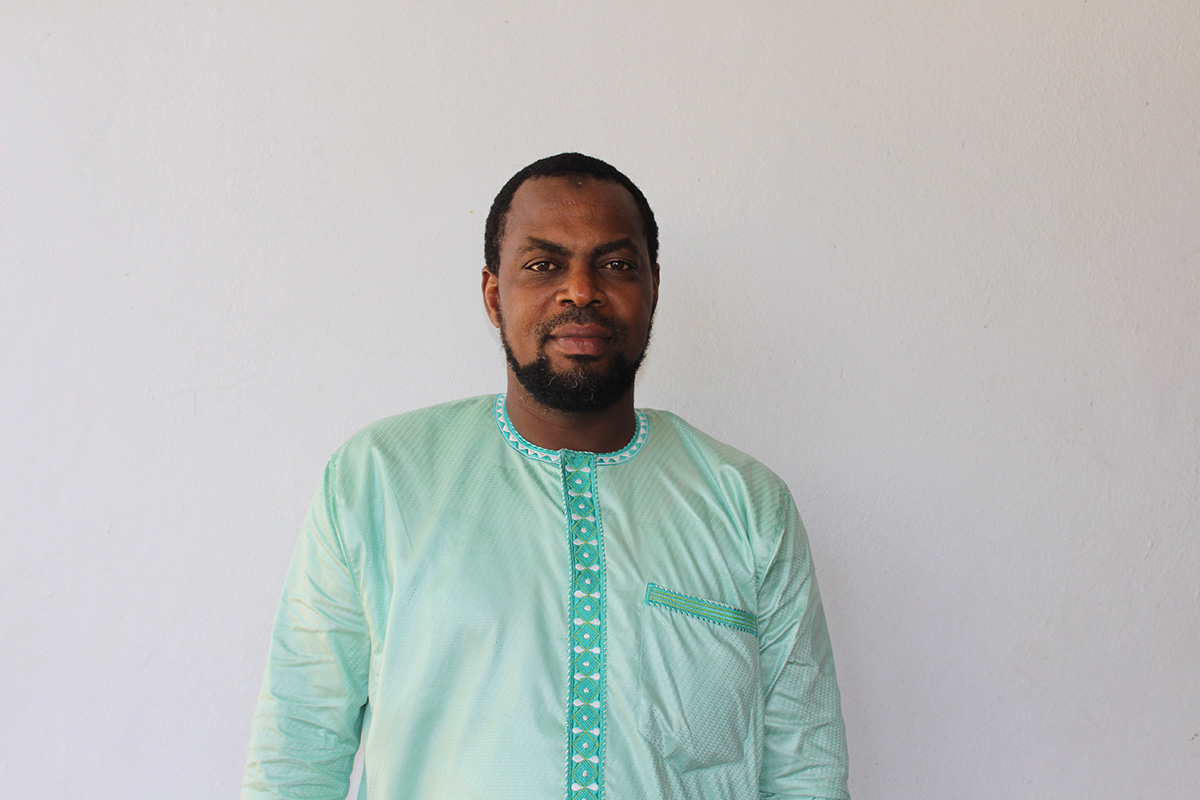
Sadou is the MEAL Coordinator for Public Concern. That means he works with Monitoring, Evaluation, Assessment and Learning. This is the methodology for monitoring a project, and collecting feedback. It also assesses a project’s outcomes and evaluates its successes. Learning is also noted that can be taken forward to future projects. As well as this Sadou manages operations for Public Concern. This covers finances, HR, logistics and administration. Sadou ensures the projects meet procedures, both external and within Public Concern.
The partnership with ShelterBox has developed the skills of Sadou and Public Concern as a whole. “For me, the partnership with ShelterBox is a lever for development; on a personal level, this partnership has strengthened my capacities and enhanced my skills, particularly in the meal sector, but also in areas such as project management, content and media creation. It is a development lever for Public Concern, as it has enabled Public Concern to move to a higher level in the quality of its documentation, reporting, project writing, the quality of activities and relations with other partners.”
Sadou went on to describe the strengths in the partnership. “The strengths of this partnership can be summed up in two points. The first is the trust that reigns between the two partners. ShelterBox gave Public Concern total confidence and allowed him to think up and design the project on his own and submit it to ShelterBox, who accepted all the proposals while making available the funds needed to achieve the objectives set. The second point concerns the funds, because very rarely have we obtained the funds we need to achieve our objectives, and in this case, ShelterBox provided the funds we needed to carry out our activities.”
Sadou also shared what he was most proud of in the project. “I‘m most proud of the way the beneficiaries feel. As Meal Manager, we have carried out satisfaction surveys among beneficiaries regarding their feelings following the assistance received, and we have had very positive feedback. The project was one of the most successful in the Far North region in terms of shelter and NFI assistance.”
He added, “There are many strong points, but one of the most important in my opinion is capacity building. ShelterBox has invested heavily in building staff capacity in a number of areas, and continues to develop tools and training content to support Public Concern staff in capacity building.”
Working with partners brings great benefits on both sides. Ultimately it also benefits the people that we support. We look forward to continuing our work in Cameroon with Public Concern.
Learn more about the crisis in Cameroon, and our work there, below.

